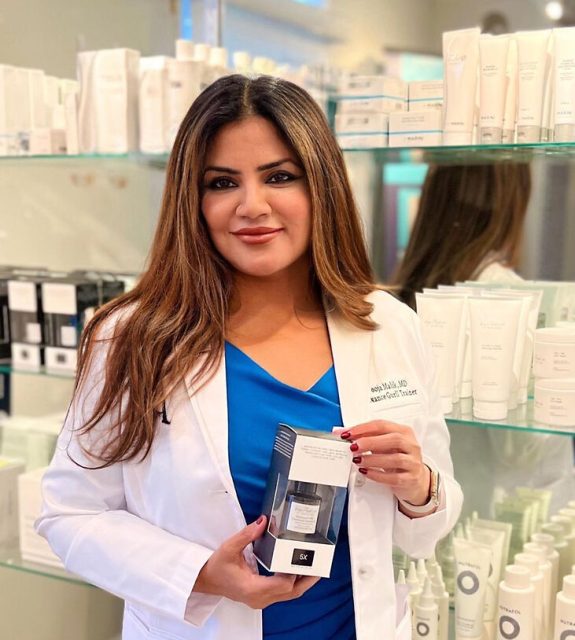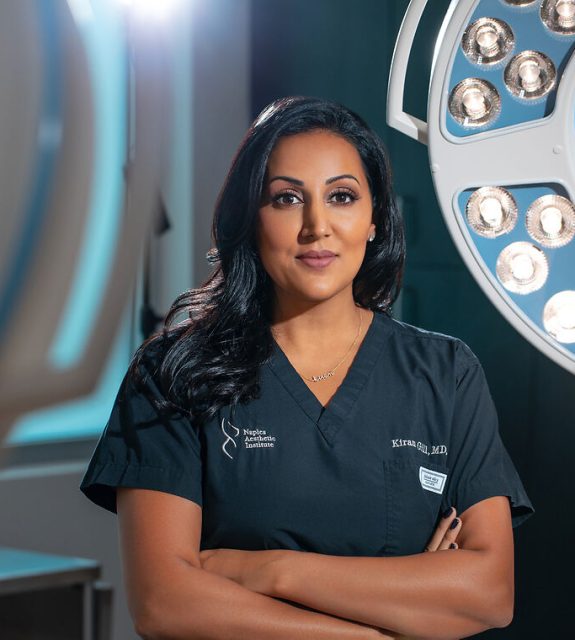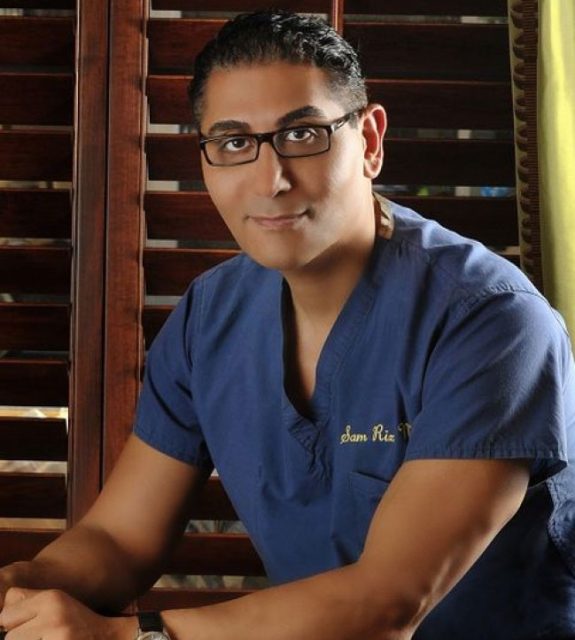 Photo Credit: Shutterstock
Photo Credit: Shutterstock
Are you looking to keep your gut healthy? Haute Beauty is here to introduce you to your new best friend, probiotics. According to Mayo Clinic, probiotics are made of microorganisms to maintain or improve your body's "good" bacteria. When you experience an infection, good bacteria is a great way to balance out or eliminate the harmful bacteria. Taking probiotics supplements daily is an efficient way to bring your body back to its best form.
Before introducing probiotics into your daily routine, Haute Beauty experts who heavily rely on probiotics give the inside scoop into how taking this supplement has affected them internally (gut) and externally (skin). Here's what they shared:
Liquid IV Therapy | Health & Wellness | Miami/Ft. Lauderdale
I suffered from IBS about 10 yrs ago and probiotics saved me! When I wake up in the morning, the first thing I do is drink an 8mL glass of room temperature water with a probiotic. Since taking probiotics, I have experienced several health benefits, such as less bloating, discomfort, and strengthening my immune system.
To further strengthen my immune system and probiotics regimen, I follow it up with an immune deluxe IV therapy with Liquid IV Therapy that has a 1 Liter bag of fluids with a mixture of vitamin C and B-complex vitamins Zinc and Glutathione. What is extra special about this is that (for people who suffer from IBS), taking Zinc orally can upset their stomach; however, when taken intravenously, it bypasses the digestive system and goes directly into your bloodstream, avoiding nausea or upset stomach.
Liquid IV Therapy is an on-demand concierge mobile IV therapy company based in Miami, FL, that brings IV vitamin treatment directly to your home, hotel, office, or yacht.
For more information, visit Liquid IV Therapy website, Instagram, or Facebook!
Liia Ramachandra | Health & Wellness | Chicago
Probiotics are foods or supplements that contain live microorganisms intended to maintain or improve the "good" bacteria (normal microflora) in the body. Prebiotics are foods (typically high-fiber foods) that act as food for human microflora.
I personally love probiotics and take them every day including giving the kids probiotics to my kids. Probiotics help restore the composition of the gut microbiome and introduce beneficial functions to gut microbial communities, resulting in the prevention of gut inflammation and other intestinal or systemic disease phenotypes. But why are probiotics good for your overall health, mental health and skin health?
The gut microbiome plays a very important role in your health by helping control digestion and benefiting your immune system and many other aspects of health. An imbalance of unhealthy and healthy microbes in the intestines may contribute to weight gain, high blood sugar, high cholesterol, sensitive skin, etc.
Basically, you are what you eat. And a healthy gut keeps your body, mind, and skin from getting sick.
- Your immune system: A healthy gut is chock-full of immune cells and good bacteria that fight off viruses, fungi and bad bacteria. And an unhealthy gut can lead to infections and more illnesses.
- Your mental health: Believe it or not, your gut has as many nerves as your spinal cord and a direct link to your brain. That means eating poorly can cause anxiety and depression, and vice versa, deteriorating mental health can lead to an unhealthy gut.
- Your strength: A troubled gut and weak immune system can lead to inflammation, hurting your joints and muscles. Your skin may look and feel dry, irritated, inflamed, etc.
Think of the gut as a second brain. Not only do the millions of bacteria in the gut extract nutrients from your food and deliver them to your body, but its nerve endings talk to your brain and your hormones to regulate your mind and sense of well-being.
Probiotics play a very important role in keeping your gut (and thus your skin, and your mental health 'healthy'!). I have suffered from psoriasis, gluten sensitivity, and sensitive skin for years and besides founding Epilynx for people with autoimmune conditions and sensitive skin, I am also a loyal and compliant probiotics lover!
For more information, visit Dr. Ramachandra's website, Instagram, or Facebook!
Dr. Deepa Verma | Integrative Anti-Aging | Tampa/St.Petersburg
Our gut contains what is called a microbiome. The microbiome is a collection of microbes, mainly a precise mixture of bacteria and yeast that is like an army that protects the body against infections and germs while helping the body digest food, absorb and make micronutrients. Unfortunately, the microbiome balance can get upset by poor diet, chronic antibiotic use, pharmaceuticals, pesticides/toxins, chemicals, etc. There are about 100 trillion bacteria in our GI tract, with about 300-500 species that encode about two million genes. So, if we have all this in our bodies, why do we need probiotics? Unfortunately, we live in a toxic and processed world where our poor diet, pharmaceutical use, and chemical exposure have adversely affected our gut and destroyed our microbiome.
Probiotics are foods or supplements that contain live microorganisms intended to maintain or improve the "good" bacteria (normal microbiota) in the body. Prebiotics are foods (typically high-fiber foods) that act as food for human microbiota. Prebiotics are used to improve the balance of these microorganisms.
Poor gut health not only affects you internally but externally as well. Many skin conditions such as eczema and rosacea usually have a root cause linked to the gut. My advice is first to get your gut health tested. I also always tell my patients to use only physician-regulated, pharmaceutical-grade nutraceuticals, especially for probiotics. Since probiotics are comprised of different strains of bacteria, it is essential to have your gut health assessed by a physician before starting any probiotic regimen.
Since there is no FDA regulation on supplements, over-the-counter vitamins and probiotics could have fillers and preservatives, and additives that are harmful to you. Always ask your practitioner what is best for you. I do not recommend yogurt or kefir, or other fermented foods as a source of probiotics.
For more information, visit Dr. Verma's website, Instagram, or Facebook!






















